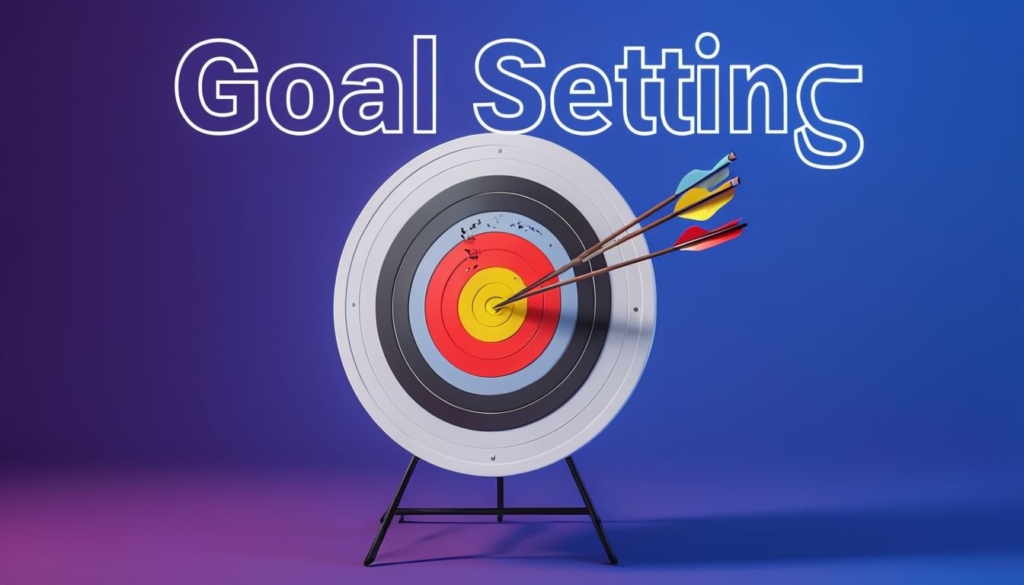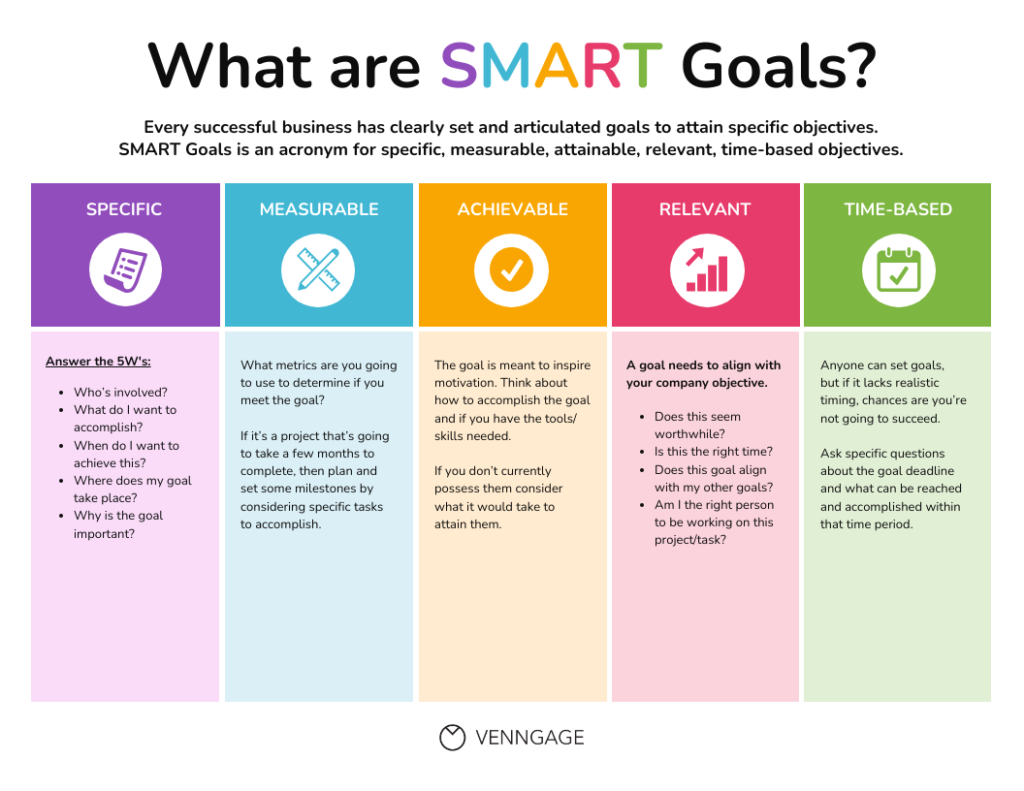Are your goals established? Are you all prepared to start on them? Possess you established some measures to help you achieve your targets?
What will make sure that you actually stay on your intended course?
Table of Contents
Goal Setting Fundamentals

Setting professional goals is a crucial step in shaping a successful and fulfilling career. These objectives provide direction, motivation, and a framework for personal and professional growth1.
By establishing clear, achievable targets, individuals can focus their efforts, track progress, and celebrate milestones along the way2. Professional goals can encompass various aspects of career development, such as acquiring new skills, obtaining certifications, expanding professional networks, or advancing to higher positions23.
When setting these goals, it’s essential to consider both short-term and long-term aspirations. Ensure they align with your overall career vision and personal values1.
By implementing effective goal-setting strategies and regularly reassessing your objectives, you can navigate your career path with purpose and confidence. Ultimately, this maximizes your potential for success in the professional world2.
Key Measures for Success in Personal Development

SMART goals provide a structured approach to goal-setting that enhances clarity, focus, and the likelihood of success. To use SMART goals effectively in your professional development, consider the following key strategies:
- Be specific: Clearly define what you want to accomplish, avoiding vague or general statements12. For example, instead of “improve customer service,” aim to “reduce customer complaint response time by 25%.”
- Make it measurable: Establish concrete criteria for measuring progress towards your goal13. Ask yourself questions like “How much?” or “How many?” to quantify your objectives.
- Ensure attainability: Set goals that are challenging yet achievable, considering your current resources and constraints2. This balance helps maintain motivation without setting yourself up for failure.
- Stay relevant: Align your goals with your broader career aspirations and organizational objectives24. This ensures that your efforts contribute meaningfully to your overall professional growth.
- Set time-bound deadlines: Establish a clear timeframe for achieving your goal to create a sense of urgency and improve time management12. For instance, “complete an advanced digital marketing course within the next six months.”
- Track progress regularly: Implement a system to monitor your advancement towards the goal5. This could involve weekly check-ins or using project management tools to visualize your progress.
- Adjust as needed: Be flexible and willing to revise your goals if circumstances change or new information becomes available6. Regular review and adaptation are key to long-term success.
- Celebrate milestones: Acknowledge and reward yourself for reaching important checkpoints along the way6. This helps maintain motivation and reinforces positive goal-setting behaviors.
By applying these strategies, you can harness the power of SMART goals to drive your professional development and achieve meaningful results in your career.
Building Accountability Partnerships
Accountability partnerships are powerful tools for staying committed to your goals by fostering mutual support, motivation, and honest feedback. To build an effective partnership, start by selecting someone who shares similar values or goals and whom you trust to provide constructive input. Clearly define the purpose of the partnership, set measurable objectives, and establish regular check-ins to review progress and address challenges12.Key practices for success include:
- Sharing your goals and the reasons behind them to create alignment and clarity34.
- Providing and receiving honest feedback to refine strategies and maintain focus56.
- Breaking down goals into actionable steps together, ensuring they remain achievable37.
- Celebrating milestones to boost morale and reinforce commitment56.
By nurturing open communication and mutual accountability, these partnerships can transform aspirations into tangible achievements while fostering personal growth76.
Achieving Professional Success
Setting professional goals is a powerful tool for career advancement and personal growth. By implementing SMART criteria and breaking tasks into manageable steps, you can significantly increase your chances of success12.
These strategies help maintain focus, track progress, and provide the necessary support to overcome challenges along the way. Remember that goal-setting is an ongoing process. Regularly review and adjust your objectives as your career evolves and circumstances change3.
Celebrate your achievements, no matter how small, as they contribute to your overall progress and motivation4. For additional insights on achieving success, consider exploring 5 Action Steps to Success.
By consistently applying these goal-setting principles and remaining committed to your aspirations, you’ll be well-equipped to navigate your professional journey with purpose and achieve meaningful results in your chosen field.
